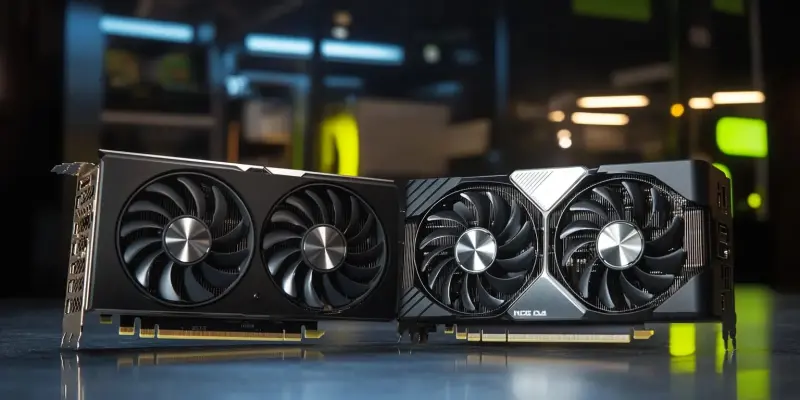The recent update to Nvidia’s GeForce Experience, known as the Nvidia App, has raised eyebrows among the gaming community due to significant performance issues. Users have reported a noticeable decrease in game performance, with some experiencing slowdowns of 10% to 15% and severe frametime issues that lead to jittery gameplay. The problem seems particularly prevalent in games built on Unreal Engine 5, such as titles like Black Myth: Wukong and The Talos Principle 2. This has led to a good deal of frustration as gamers find their gaming experience hampered by what was supposed to be a beneficial upgrade.
Users Identifying the Problem
Reports of Reduced Game Performance
A user named Sebastian Castellanos brought attention to the performance issues on the social media platform X. Castellanos noticed that uninstalling the Nvidia App led to a significant improvement in gaming performance and resolved the troublesome frametime problems. He shared that, after a period of thorough testing, the framerate improved by 22% in Black Myth: Wukong following the uninstallation. These findings were supported by similar trends observed in The Talos Principle 2, where disabling certain settings within the Nvidia App further alleviated the issues.
Castellanos found that by navigating through the app settings and disabling ‘Game filters and Photo mode,’ users can considerably improve performance. This discovery was especially impactful for gamers attempting to enjoy new releases built on the Unreal Engine 5 platform, as it restored smoother gameplay and reduced the occurrence of jitter and lag. Despite the initial frustration, Castellanos’s findings have provided temporary relief while users wait for a more permanent solution.
Nvidia’s Response
In the wake of these unsettling findings, Nvidia swiftly responded by acknowledging the issue. The company confirmed that it is currently investigating the problem and has advised affected users on certain steps to mitigate the issues. Nvidia recommended disabling the Game Filters option. This aligns with Castellanos’s findings and offers a temporary fix that falls under the guidance provided by Nvidia App Settings > Features > Overlay > Game Filters and Photo Mode.
While this temporary solution has been effective for some, Nvidia cautions that it might not work for all affected systems. For those who continue to experience performance degradation, the recommended course of action is to uninstall the Nvidia App and use the basic Nvidia graphics driver until a more comprehensive fix can be implemented. This has, for now, served to stabilize gaming experiences, albeit not to the optimal standard expected by end-users.
Concerns Over Quality Control
The Importance of Rigorous Testing
The issues highlighted by the Nvidia App’s adverse impact on game performance underscore growing concerns regarding the software’s quality control. The unexpected nature of these bugs, which were not identified or addressed during the beta testing phase, points to potential shortcomings in the real-world testing protocols. It raises questions about the thoroughness of the beta testing period and its capability to catch performance-affecting bugs before the software reaches a broader audience.
This situation emphasizes the need for comprehensive, real-world testing in software development. Applications that are critical to gaming performance must be rigorously examined under a variety of conditions to ensure they do not compromise the user experience. The industry must prioritize catching such significant issues pre-release to ensure that users are not left troubleshooting bugs that significantly impair functionality.
Moving Forward for Gamers and Developers
The latest update to Nvidia’s GeForce Experience, now called the Nvidia App, has sparked significant concern within the gaming community due to major performance problems. Gamers have reported notable declines in game performance, observing slowdowns ranging from 10% to 15% and considerable frametime issues, which result in choppy and jittery gameplay. These issues are notably pronounced in games utilizing Unreal Engine 5, including titles such as Black Myth: Wukong and The Talos Principle 2. Many gamers, who had expected the update to enhance their experience, instead find themselves grappling with degraded performance and a diminished gaming experience, leading to a wave of frustration and disappointment. The promise of improvements and better functionalities through this update has not materialized, leaving users to deal with adverse effects on their favorite games. As a result, the community is calling for immediate fixes and better optimizations to restore the expected performance levels.

